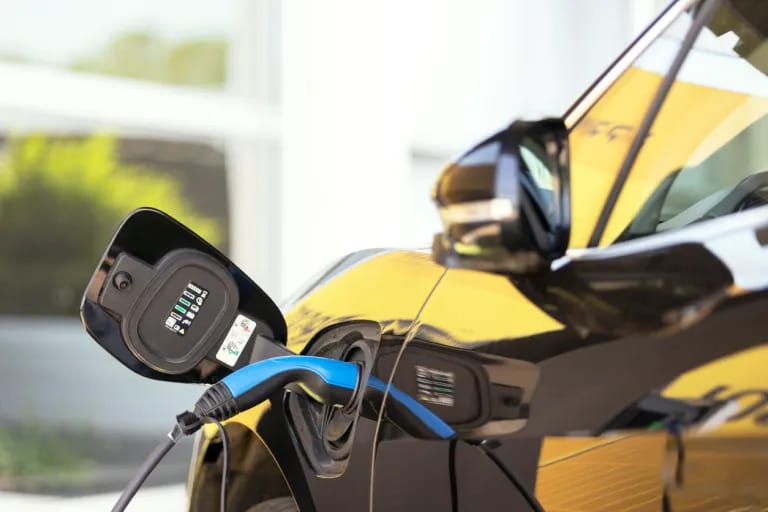- HOA Leaders' Brief
- Posts
- Community Resilience Planning
Community Resilience Planning
Good morning!
This week, I’ve been focusing on growing our team, interviewing new members, and laying the groundwork for our next big phase of expansion. With every new addition, we’re strengthening our ability to deliver the best support possible. Stay tuned for more updates as we continue to build and evolve!
— Lucas Robinson, Founder & CEO at BudgetMailboxes.com
🎯 This Week’s Strategy:
Community Resilience Planning
🌐 Boardroom Brief:
Florida Homeowner Seeks HOA Approval for EV Charging in Common Areas
Strategy
🎯 Community Resilience Planning
For this week's edition of the HOA Leaders' Brief, we’re exploring a strategy that can greatly enhance the long-term sustainability and safety of your community: Community Resilience Planning. This proactive approach ensures that your HOA is prepared for unexpected challenges like natural disasters, power outages, or other emergencies, making your community more resilient and capable of recovering quickly. Here’s how to get started:
What is Community Resilience Planning?
Community resilience planning involves identifying potential threats (such as natural disasters or environmental hazards) and creating a framework to mitigate those risks. For HOAs, this includes developing contingency plans for events like storms, floods, fires, or even long-term power outages. It prioritizes the safety of the community, ensuring that essential services remain functional, and that residents are equipped with the resources they need to handle crises.
How to Implement Community Resilience Planning in Your HOA
Risk Assessment:
Start by identifying the primary risks your community faces. Is your area prone to hurricanes, wildfires, or flooding? Work with local authorities and experts to assess these risks and gather data on past incidents or emerging threats.Develop an Emergency Plan:
Once risks are identified, develop an emergency response plan that includes clear evacuation routes, communication protocols, and responsibilities for HOA board members and residents. Ensure the plan covers scenarios like power outages, water supply disruptions, and access to emergency services.Strengthen Infrastructure:
Invest in infrastructure improvements that can withstand extreme weather conditions. For example, install flood-resistant landscaping, reinforce buildings, or update electrical systems to reduce vulnerabilities.Resident Engagement and Education:
Educate your residents about the importance of resilience planning and how they can participate. Host workshops or distribute guides on emergency preparedness, covering topics like creating personal emergency kits, safeguarding important documents, and staying informed during a crisis.Establish Partnerships:
Collaborate with local government agencies, emergency services, and neighboring communities to create a support network. This helps streamline access to resources and assistance in times of need.
Implementation Tips
Regular Drills: Conduct community-wide emergency drills annually to ensure that residents are familiar with evacuation routes, meeting points, and emergency procedures.
Update Plans: Review and update the resilience plan annually to address new risks or changes in the community.
Communication: Ensure that all residents have access to the emergency plan through newsletters, your HOA website, or a dedicated app. Establish a reliable communication channel for real-time updates during emergencies.
By adopting community resilience planning, HOAs can ensure their residents are well-prepared, their properties are protected, and the community remains strong in the face of uncertainty.
Produced by BudgetMailboxes
🤝 Thanks to the BudgetMailboxes Team!
Looking for top-quality mailboxes, cluster boxes, or street lights? Let our expert team at BudgetMailboxes assist you. Contact us today to get started!
Boardroom Brief
Florida Homeowner Seeks HOA Approval for EV Charging in Common Areas

A recent post on Reddit’s r/HOA subreddit highlighted the growing challenges HOAs face with electric vehicle (EV) charging stations. A Florida homeowner struggled with unclear regulations regarding where EV chargers could be installed in their townhome community, where front yards and parking spaces are considered common areas. While Florida law protects homeowners' rights to install chargers on their property, the issue arose when defining individual versus common areas. The homeowner proposed HOA-managed charging stations in common areas to solve the issue, but this solution faces legal hurdles, including obtaining supermajority approval for material changes. Some Reddit users suggested that HOA-owned charging stations, rented to homeowners, could be the most viable option. This situation underscores the complexity HOAs face in balancing emerging technologies with community regulations.
